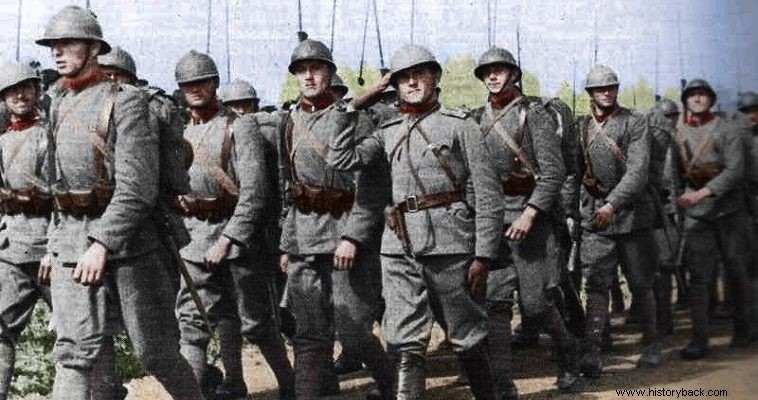
The hatred between Serbs and Croats is well known and fades over time. But more than ever it manifested itself during the Second World War. Yugoslavia was attacked by the Axis powers (German, Italian, Hungarian and Bulgarian) on April 6, 1941.
The Yugoslav army could, after conscription, field over 1,400,000 men. However, the surprise attack and the completely wrong deployment of the Yugoslav forces did not even allow the mobilization of many units.
However, another decisive factor was the withdrawal of Croatian officers and men from the Yugoslav army when it was under attack. The Croats not only did not fight against the invaders, but on occasion they beat their Serb "compatriots" or prevented the conscription from taking place. In fact, a Croatian aviator defected to the Germans, on the eve of the attack, handing over to them a map with all the dispersion airports of the Yugoslav air force.
A typical example of what was called "Croatian betrayal" was the case of the 40th Infantry Division (MP) "Slavonska" which consisted mainly of Croats. The 40th MP belonged to the 4th Army of the 1st Army Group with the mission of covering the border with Hungary.
The 40th MP, commanded by Brigadier General Ratko Raketic, had the 42nd, 43rd and 108th Infantry Regiments (IP), the 40th Artillery Regiment, a reconnaissance battalion, a machine gun battalion and services. On April 6, 1941, the German attack took place and the Croats immediately refused to fight. In general the 4th Army had trouble completing its recruitment. Many units stopped recruiting or began voluntarily withdrawing from their concentration areas.
Even the radio network was disrupted by Croatian sabotage. The following day, April 7, the German forces attacked with infantry and a few tanks. The Croatian 2/393 Border Guard Battalion disintegrated immediately, abandoning positions and weapons.
In the 108th SP the Croats openly rebelled. They captured the Serb officers and their colleagues and retreated south where, the next day, they joined other Croatian forces who had mutinied. At the same time, Croats spread false information about a deep German advance, forcing Serbian units to retreat.
On April 8, the German 46th Motorized Army Corps (MK/SS) continued its advance and found itself in front of the 40th MP sector which was guarded only by the divisional headquarters... The men of the 108th SP and most of the 42nd had mutinied , under the leadership of a Croatian squadron leader, Ivan Mrak. The commander of the 4th Army ordered the gendarmerie to intervene, but the gendarmerie had also deserted.
After this, the commander of the 4th Army, General Nandelikovic, requested the bombing of the rebels by the air force, but this did not happen either. The intervention of the moderate Croatian politician Vladko Matsek was requested, but it did not bring any result.
Communist Tito asked the command of the 4th Army to give weapons to the workers to defend themselves in Zagreb. General Nandelikovic refused. So shortly Croatian mutineers appeared at the headquarters of the 4th Army with the intention of killing the general and his staff. The staff guard repulsed them, but the situation was desperate.
About 8,000 insurgents attacked the town of Bjelovar after capturing whatever Serbian soldiers they found there . Then they announced that the city belongs to the independent state of Croatia. In the meantime the Germans were advancing and those Croats who were still left in the units of the 40th MP deserted. Only the Serbs were left to fight.
In the 42nd SP only 600 men were left. And the 89th which was sent as reinforcement was also disbanded and it was a question of whether it could field a battalion. When the Germans resumed the attack the 40th MP simply collapsed. The divisional command abandoned its positions against the Germans and began to fight the Croatian rebels.
Meanwhile the Croatian nationalist Ustasi had openly rebelled and were collaborating with the advancing Germans against the Serbs. The Croatian prisoners of war were released by the Germans... The internal enemy had crushed the 4th Army.
